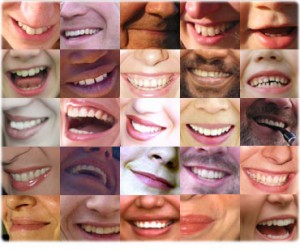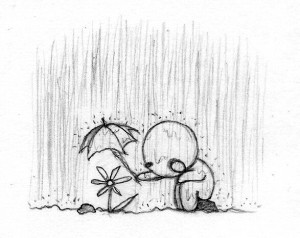Eliminating Addiction (January 16th) …
January 16 – Eliminating Addiction: Everyone has more than one personal addiction. They may not be traditional (like alcohol, cigarette or drug abuse), and yet any behavior that is both self-centered & self-destructive qualifies. This can be overeating, gossiping about others, engaging in superficial sexual intercourse, immersing yourself in “the news” or watching soap operas … Take a few moments to identify and list your own. Once you’ve displayed the courage to honestly do so, rank them from most to least difficult to stop. Disregarding whether or not you feel you should stop them at all, pick your most difficult addiction and do not engage it at all today. Bonus Activity: Every time a craving to satisfy your “top addiction” surfaces, instead of rejecting that impulse, actively replace it with a healthy alternative.
We are all familiar with the documented difficulties people have with traditional physical addictions, most of which are centered upon a physiological craving for an external substance.
Initially, one of the most well-publicized physical addictions is alcoholism. Over 50% of all Americans consider themselves regular drinkers, with over 14 million of them suffering from some sort of alcohol addiction.
Also, about 33% of all Americans are addicted to drugs of one sort or another. Roughly two-thirds of such drug addicts are addicted to nicotine. Interestingly enough, even though tobacco related deaths in America every year exceed the number of Americans killed in WWII & Vietnam combined, the sale & use of cigarettes remains legal. Indeed, tobacco is the only legal product in the U.S. that causes disability & death when used as intended. Cigarette smoking is also the only addictive behavior that directly harms not only one’s self, but also everyone else nearby.
Caffeine, the most commonly used psychoactive substance in the world, is used by 90% of Americans every day. Over 75% of this caffeine is ingested by drinking coffee. Over-indulgence of this substance causes radical swings in mental alertness (“zoning out”), produces regular bouts of irritability and intensifies anxiety.
And, of course, the physical addiction to sugar is understood by even more Americans. And yes, a growing body of research is showing that the cravings for sweets that many people experience are actually symptoms of a very real physiological addiction – one that has been linked to tooth decay, gum disease, type-2 diabetes, osteoporosis, and chronic depression.
The previous addictions are well known and accepted by the vast majority of people, and yet there are many other very common behavioral addictions – addictions that are subtle, and yet that are just as real and just as debilitating.
Over-eating is possibly the most insidious of these. Even compared to the FDA’s grossly inflated calorie-intake requirements, most Americans eat far more food than their health requires.

whenever a person cares selflessly for another, he/she remains vibrant -- even if no food is consumed during those times.
Especially in “1st World”, industrial nations like the United States, hurrying and rushing about is a very common addiction. The drive to be “productive” & “efficient” & “successful” has all but destroyed many individuals’ ability to truly appreciate their Here&Now.
Many are also addicted to the “interconnection” that today’s technological innovations afford. Like any other addictive behavior, using the Internet or one’s cell phone is not “bad” in and of itself. And yet, once a behavior becomes a regular habit that hinders the intimate connection with one’s surroundings, it becomes a detrimental addiction. The desire to “stay connected” actually neuters our opportunities to deeply interact with others.
Many individuals are also addicted to “having fun” or “living life to the fullest” – a regular practice of self-centered shallowness that often leads to spiritual dis-ease for one’s self, emotional pain for others, &/or the physical destruction of one’s environment.
As opposed to looking for the positive in others, many folks are addicted to gossiping negatively about them. As opposed to seeing the ever-present wonders around them, many are addicted to complaining about what they lack.
As opposed to going forth into their own communities and “being the change they wish to see”, many people are addicted to giving their power to politicians – and then becoming severely frustrated when those representatives prove to be ineffective. As opposed to developing a sense of identity that is connected to one’s community, many are addicted to an identity that is attached to a political party’s current level of “success” or ‘failure”.

“The definition of insanity is doing the same thing repeatedly and expecting different results.” ~ Albert Einstein
Interestingly, many of the same people who are addicted to their political identity are also the ones who are addicted to rebelling against governmental authority in general. These folks jubilantly wave the American flag in July (supporting the “War on Terror” in the process), and yet grumble about paying their taxes the following April.
And yet there are also those who are addicted to “following the rules” – to “being a good citizen”, to “doing their duty”, and to “fitting in”. While this mentality does allow one to “function well” within a particular society, it is also one of the quickest ways to lead a meaningless existence. As far as the Soul is concerned, it is inappropriate to cave to convention.
Another common addiction is the yearning for “security” – the intense advocacy of “self-defense” in order to be “safe” at all times. While this longing is an understandable one (being programmed into the most primitive foundations of every sentient brain), giving it an overdue emphasis in everyday life proves to be completely counterproductive. Worrying about being able to repel potential danger in the future actually emits a frequency that summons that very danger into the present.
The way many of us deal with our belongings can also prove addictive. We not only attach emotionally to possessions we no longer need,
… but we also become addicted to asking for more from others.

Recovery option: regularly give away unused belongings (De-cluttering your home de-clutters your mind).
Oddly enough, often the folks who are addicted to the mindless sloth of watching TV (especially soap operas and sporting events),
… are the very people who are also addicted to “staying healthy”.
And then there are the subtle, internal addictions – mental attitudes, ways of judging life, and adopted character traits that reflect the base-fears of the reptile brain in all of us.
Some folks are addicted to their skepticism, and as a result miss out out on many opportunities to experience fresh wonders.
Some people are addicted to their callousness, and as a result miss out on many opportunities to experience deeper intimacy with those around them.
Some individuals are addicted to their envy, and as a result miss out on many opportunities to experience the Joy of being grateful for what they do possess.
Some are addicted to their desires, and as a result miss out on many opportunities to experience the Peace that only comes during moments of real Caring.
Some persons are addicted to conflict & criticism, and as a result miss out on many opportunities to experience the happiness that comes from true friendship.
Some are addicted to striving for success, and thereby assure that their lives are filled with failure.

Recovery option: shift "success" to mean not what you achieve for self, but rather what you bring to others
Some are addicted to striving for self-improvement, and thereby assure that their lives are filled with self-loathing.
And some are addicted to striving for personal salvation (or “enlightenment”), and thereby assure that their lives are filled with dissatisfaction.

Recovery option: shift "heaven" to mean not somewhere to go to obtain a reward, but the best time to give one (now)
And how about my personal addictions?
As far as the “negative” addictions that tend to hold me back from being my caring True Self, I have a few primary ones – like watching American football highlights,
… and debating the theologies of the Bible with conservative Christians.
Neither practice is in and of itself “bad”, and yet where my football watching takes me away from serving others, it doesn’t serve Me – and where my discussions with conservative Christians don’t illuminate Jesus’ selfless Way, they don’t serve anybody.
Over the years, I have been steadily cleansing myself of all my addictions (both those past & those present). And I have found that, whenever I am tempted with an addictive impulse, pausing to consciously replace the same with a positive, Love-affirming and active alternative is the most effective way to do so.
When feeling the urge to be envious or critical or sad or annoyed, I pause and laugh. I consciously choose to remember the “bigger picture” and exude Joy instead.
When feeling stressed or anxious or hurried, I pause and breathe. I consciously choose to remember the “bigger picture” and feel Peace within instead.
And when tempted to rest when tired or ill or in pain, I pause and then set forth to serve another. I consciously choose to remember the “bigger picture” and exude Kindness instead.
These practices have enabled me to effectively begin “re-wiring” my brain – to make the gradual-yet-irreversible shift from engaging behaviors that are futile and addictive behaviors to those that are effective and Meaning-full. And the more often I choose to do so, the more fluid this transition becomes.
See You when I see you …
… and until then, Be Now!
Scaughdt





























 ;
;